| Availability: | |
|---|---|
| Quantity: | |
| Place of Origin | shenzhen, China |
| Processing Service | Moulding, Cutting |
| Brand Name | UniBelt |
| After-sales Service Provided | Engineers available to service machinery overseas |
| Specification | 4ply 735mm width 14mm thickness 9MPA |
| Feature | Excellent Heat-resistance |
| Color | Black |
| Name | big v belt |
| Type | Cut Edge |
| Tensile Strenghth | 14MPA-23MPA |
| Material | Natural Rubber |
| MOQ | 87meter |
| OEM | Welcomed |
| Packaging Details | Packaging Details: blue or white Woven Bags Delivery Time: 25-39 days after deposit |
| Supply Ability | 129699 Meter/Meters per Week |
| Quantity (meters) | > 2568 |
| Lead time (days) | 11 |
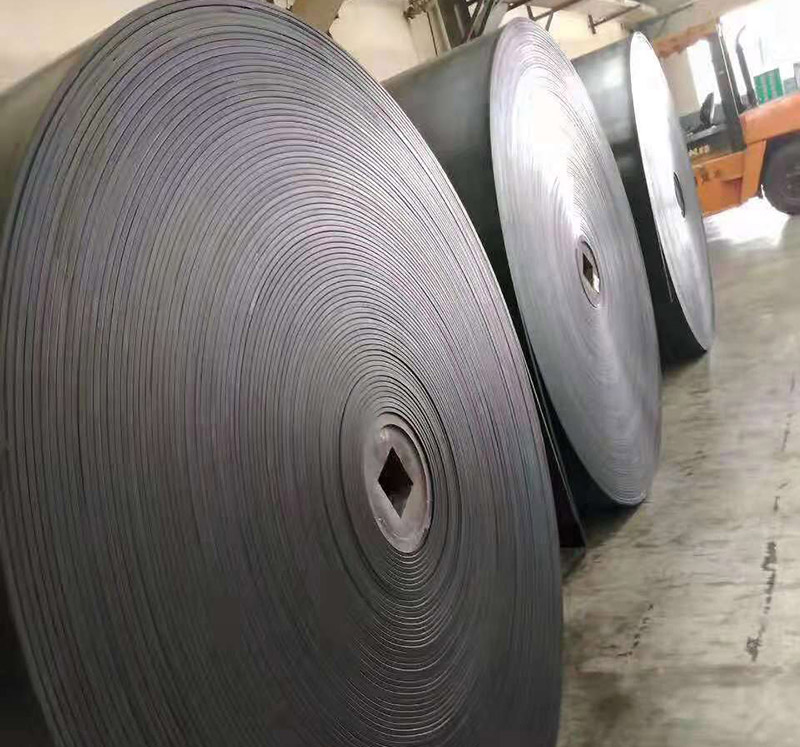

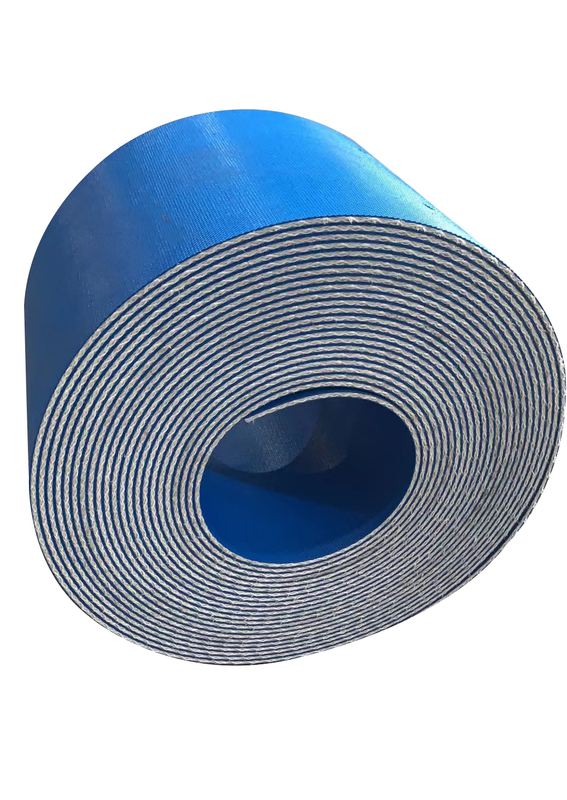
1.Can big v belt be recycled?
Our big v belt products have competitive and differentiated advantages, and actively promote digital transformation and innovation.
Yes, conveyor belts can be recycled. They are typically made of rubber, which can be shredded and reused in various applications such as flooring, playground surfaces, and automotive parts. Some companies also offer recycling services specifically for conveyor belts, where they are broken down and repurposed into new products. It is important to properly dispose of conveyor belts to prevent them from ending up in landfills and contributing to environmental pollution.
2.Can big v belt be utilized for inclined transport?
As one of the big v belt market leaders, we are known for innovation and reliability.
Yes, conveyor belts can be utilized for inclined transport. In fact, many conveyor systems are designed specifically for inclined transport, such as incline conveyors or cleated belt conveyors. These types of conveyors use specialized belts with cleats or ribs to prevent items from slipping or rolling back down the incline. They are commonly used in industries such as agriculture, mining, and manufacturing to transport materials up or down slopes or inclines.
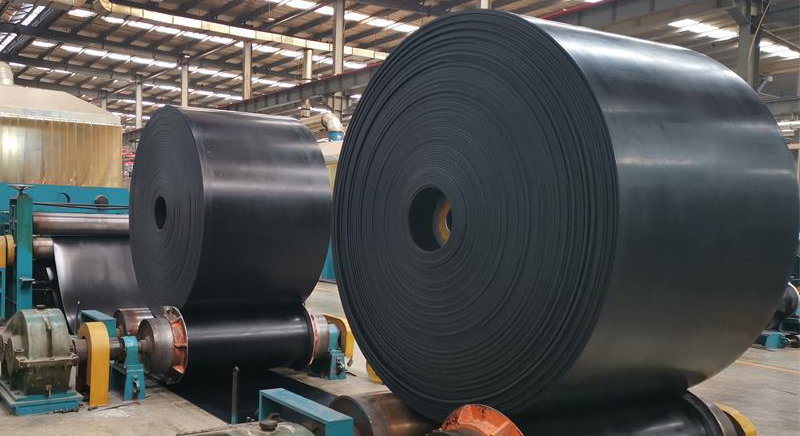
3.How do you prevent slip and slide on a big v belt?
We are centered on customers and always pay attention to customers' needs for big v belt products.
Slip and slide on a conveyor belt can cause production delays and may also pose a safety hazard in the workplace. To prevent this, several measures can be taken. First, regular maintenance and cleaning of the conveyor belt should be carried out to ensure that it is free from debris and build-up, which can cause slippage. Additionally, the proper tension of the belt should be maintained to ensure it stays on track. Installing anti-slip guards or mats on the conveyor belt can also help increase friction and prevent sliding. Another effective measure is to use conveyor belt pulley lagging, which improves traction between the belt and the pulley. Keeping the surrounding environment dry and free from spills or excessive debris can also contribute to preventing slip and slide. Lastly, providing proper training and ensuring that employees are wearing appropriate footwear can also help reduce slip and slide occurrences on a conveyor belt.
4.What are some potential hazards associated with working with big v belt?
Our big v belt products undergo strict quality control to ensure customer satisfaction.
Working with conveyor belts can pose potential hazards for employees if proper safety measures are not followed. Employees who are not properly trained on how to operate or use the equipment can face serious injuries. Some common hazards associated with conveyor belts include pinch points, entanglement, and falling objects. Pinch points can occur when an employee's body or clothing gets caught between the moving parts of the conveyor belt, which can lead to amputations or severe injuries. Entanglement can also occur if long hair, jewelry, or loose clothing get caught in the moving parts of the belt, causing serious injuries. Additionally, employees who are working near or under the conveyor belt are at risk of being hit by falling objects from the belt or items being transported. It is crucial for employers to provide proper safety training and enforce safety protocols to prevent these hazards and protect their employees.

5.What safety precautions should be followed while working with big v belt?
big v belt is not a product only, but also can help you comes to money-making.
When working with conveyor belts, it is important to follow certain safety precautions to ensure the safety of yourself and those around you. First and foremost, always wear the proper personal protective equipment, such as gloves and safety glasses, to protect against potential hazards. It is also important to regularly inspect the conveyor belt for any signs of wear and tear, and address any issues immediately. When operating the conveyor belt, make sure to follow proper lockout/tagout procedures to prevent accidental start up. When loading or unloading materials onto the conveyor belt, be aware of your surroundings and stand clear from any moving parts. Additionally, be cautious of any potential pinch points and keep hands and clothing clear from them. Lastly, always be familiar with the emergency shut-off procedures and have an emergency plan in place in case of any accidents. By following these safety precautions, you can ensure a safe working environment when working with conveyor belts.
6.Are there different types of big v belt cleaners?
We continue to improve big v belt products and processes to improve efficiency.
Yes, there are various types of conveyor belt cleaners available on the market. These include brush cleaners, scraper cleaners, blade cleaners, and air knife cleaners. Each type has its unique design and function to effectively remove debris and buildup from the conveyor belt. Some cleaners are designed for general-purpose cleaning, while others are specifically designed for certain industries, such as food processing or mining. The type of cleaner needed will depend on the type of material being transported, the size and speed of the conveyor belt, and the specific cleaning requirements of the facility. It is important to select the right type of cleaner for optimal performance and to ensure the proper maintenance and longevity of the conveyor belt.
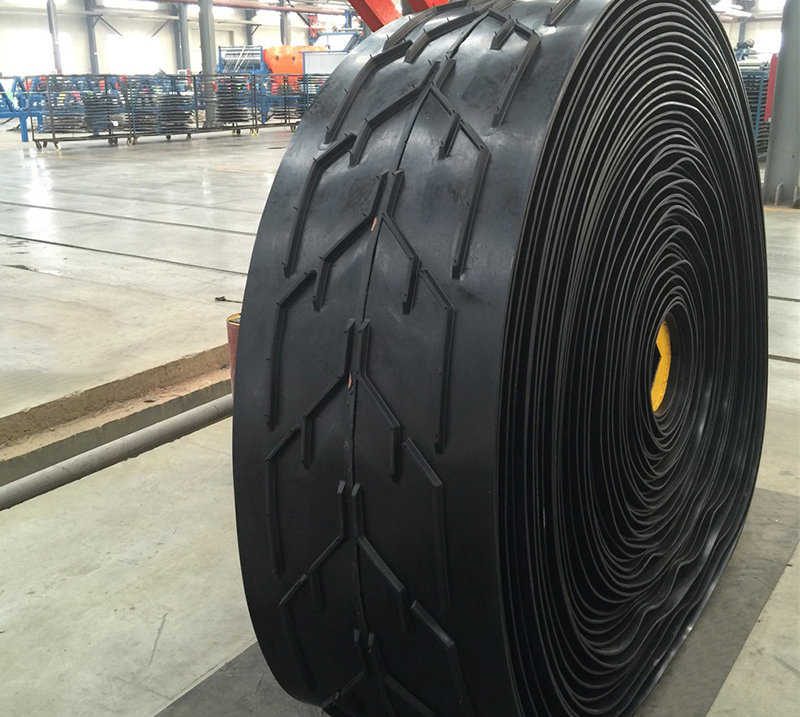
7.What is a big v belt tracking system?
We have a good reputation and image in the industry. The quality and price advantage of big v belt products is an important factor in our hard overseas market.
A conveyor belt tracking system is a mechanism used to ensure that a conveyor belt stays centered and aligned on its track. It typically consists of sensors, rollers, and other devices that detect and correct any misalignment or deviation of the belt. This system is important for maintaining the efficiency and safety of conveyor systems, as a misaligned belt can cause damage to the belt itself and the equipment it is moving.
8.What is the average lifespan of a big v belt motor?
We attach importance to the innovation ability and team spirit of employees, have advanced R & D facilities and laboratories, and have a good quality management system.
The average lifespan of a conveyor belt motor can vary greatly depending on factors such as usage, maintenance, and environmental conditions. However, on average, a conveyor belt motor can last anywhere from 5 to 15 years. Regular maintenance and proper usage can help extend the lifespan of a conveyor belt motor.

9.How are products loaded and unloaded on a big v belt?
We are a new big v belt manufacturer.
Products are typically loaded onto a conveyor belt using one of the following methods:
Conveyor belts are widely used in various industries to efficiently transport products from one location to another. The loading and unloading process on a conveyor belt typically involves a few steps. Firstly, products are placed onto the conveyor belt by a worker or through an automated system. The belt then moves the products along its path, usually with the help of rollers or a pulley system. As the products reach their destination, they are either manually or automatically removed from the conveyor belt. This can be done by a worker who takes the products off the belt, or by using specialized equipment such as robotic arms. In some cases, the conveyor belt may also have a mechanism to flip or rotate the products to ensure they are in the correct orientation for the next step in the production or distribution process. Once unloaded, the conveyor belt continues to move, ready to receive the next batch of products for loading. This efficient and streamlined process allows for a continuous flow of products, increasing productivity and reducing labor costs.
10.Can a big v belt be used for sorting and diverting products?
We pay attention to employee development and benefits, and provide a good working environment in order to improve the efficiency of employees and improve the quality management of big v belt products.
Yes, a conveyor belt can be used for sorting and diverting products. This can be achieved by using sensors, switches, and other mechanisms to detect and redirect products to different paths on the conveyor belt based on their size, shape, weight, or other characteristics. This process is commonly used in industries such as manufacturing, packaging, and logistics to efficiently sort and distribute products to their designated destinations.
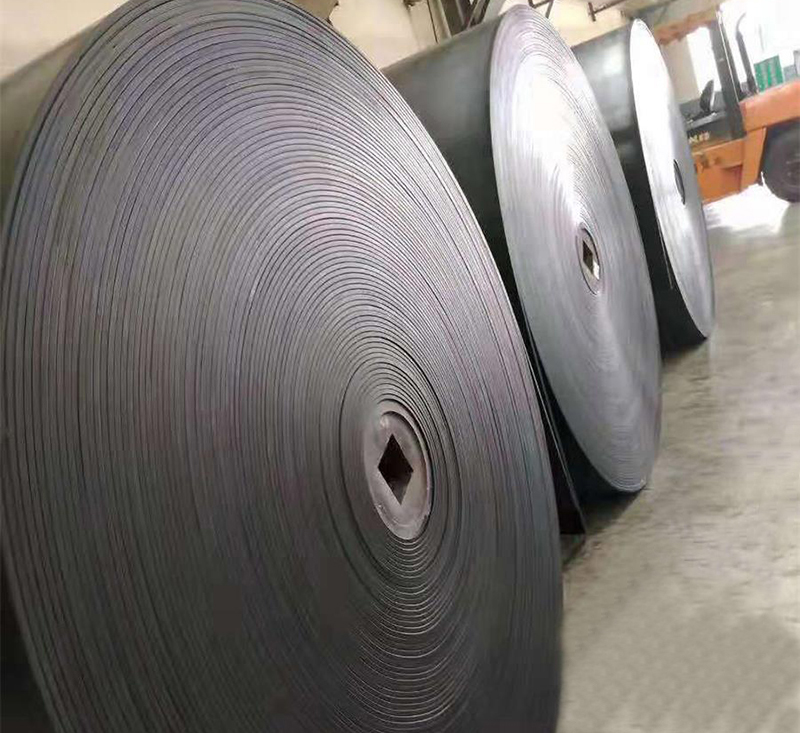
11.How do you safely handle and maintain big v belt pulleys?
Handling and maintaining conveyor belt pulleys is crucial to ensure the proper functioning and longevity of the entire conveyor system. The first step is to always use proper lifting techniques and equipment to safely handle the pulleys. It is important to regularly inspect the pulleys for any signs of wear and tear, such as cracks or dents, and promptly replace them if necessary. Regular cleaning is also essential to prevent build up of debris, which can cause damage to the pulleys and affect the performance of the conveyor. Lubrication of the pulleys is also important to reduce friction and prevent excessive wear. In case of any malfunctions or abnormalities, it is recommended to consult a professional for proper maintenance and repairs. By following these precautions, conveyor belt pulleys can be safely handled and maintained, ensuring the smooth operation of the conveyor system.
12.What are the different types of big v belt?
We adhere to the principle of quality first and have a complete production quality management system and quality inspection process.
There are several types of conveyor belts that are designed for different purposes. The most common types include flat belt conveyors, roller conveyors, modular belt conveyors, and cleated belt conveyors. Flat belt conveyors are used for general transportation of items and materials, while roller conveyors use rollers to move goods along a path. Modular belt conveyors feature interlocking plastic segments for increased versatility, and cleated belt conveyors have raised sections or cleats to keep items from sliding off the belt. Other types of conveyor belts include magnetic belt conveyors, spiral conveyors, and gravity conveyors. The type of conveyor belt used depends on the specific needs and requirements of the application, such as the weight and size of the items being transported and the environment in which the conveyor will be used.
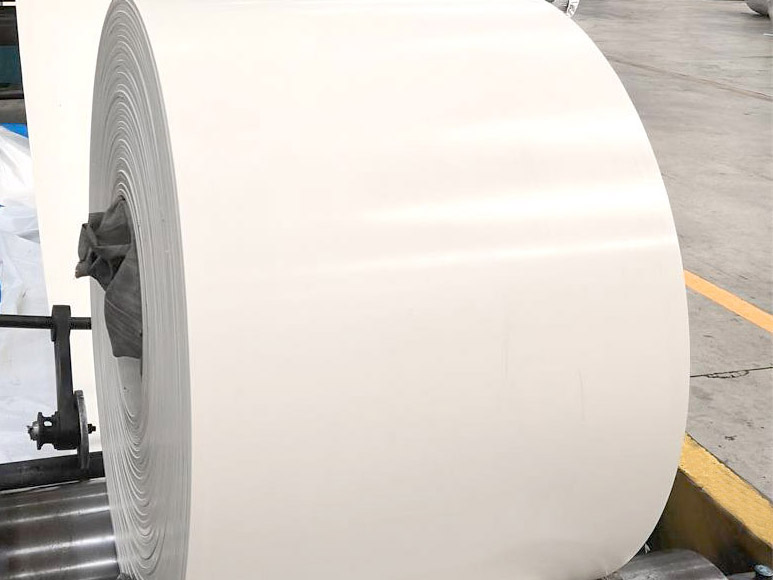
13.How do you determine the appropriate width of a big v belt?
We focus on teamwork and communication to achieve common goals, We attach great importance to this detail.
The appropriate width of a conveyor belt is determined by several factors. Firstly, the dimensions of the items being transported need to be considered. The belt should be wide enough to accommodate the size of the items without causing any damage or hindering the flow. Additionally, the speed and capacity of the conveyor system should also be taken into account. A wider belt can increase the speed and capacity of the system, allowing for more efficient and timely transportation of goods. Another important factor is the layout and space available for the conveyor system. The belt should be wide enough to fit within the space and allow for proper installation and operation. Finally, the type of material being conveyed and any special requirements, such as inclines or declines, should also be considered when determining the appropriate width of the conveyor belt.
14.What are the advantages of using a big v belt over other forms of material handling?
We have advantages in marketing and channel expansion. Suppliers have established good cooperative relations, continuously improved workflows, improved efficiency and productivity, and provided customers with high -quality products and services.
Conveyor belts are widely used in various industries for material handling purposes. They have several advantages compared to other forms of material handling methods. Firstly, they are highly efficient and can transport large quantities of goods or materials at a faster pace, resulting in increased productivity. This is because conveyor belts are automated and can operate continuously without the need for breaks or rest periods. Secondly, they require minimal human intervention, reducing the risk of human error and potential accidents.
they offer better safety compared to manual material handling methods, thus protecting workers from potential injuries. Continuous and consistent movement of goods also reduces the chances of damage or breakage.
conveyor belts can be customized to fit specific needs and can be used to handle a wide variety of materials, including heavy and bulky items. As a result, they are versatile and can be utilized in different industries. Finally, conveyor belts help to save space as they can transport materials over long distances or through tight spaces, making them a more cost-effective option for material handling.

15.Can big v belt be used for vertical transport?
We have flexible production capacity. Whether you are large orders or small orders, you can produce and release goods in a timely manner to meet customer needs.
Yes, conveyor belts can be used for vertical transport. This type of conveyor system is known as an inclined or vertical conveyor. It uses a series of belts or chains to move materials up or down an incline or vertical path. These types of conveyors are commonly used in warehouses, distribution centers, and manufacturing facilities to move products between different levels of a building. They are also used in mining and construction industries for transporting materials to different levels of a site.
16.What are some important factors to consider when choosing a big v belt supplier?
When choosing a conveyor belt supplier, there are several important factors that should be considered. Firstly, the quality and durability of the conveyor belt should be top priorities. This includes the material used, its weight capacity, and its resistance to wear and tear. Secondly, the supplier's reputation and experience in the industry should be evaluated. A reliable supplier with a good track record will ensure efficient and timely delivery of products. Thirdly, the cost and availability of spare parts and maintenance services should also be taken into account. Additionally, the supplier's level of customer service and support should be assessed to ensure a smooth and satisfactory purchasing experience. Finally, the supplier's compliance with international standards and regulations should also be considered to ensure the safety and reliability of the conveyor belt. Ultimately, a thorough evaluation and consideration of these factors will lead to choosing a reputable and reliable conveyor belt supplier.
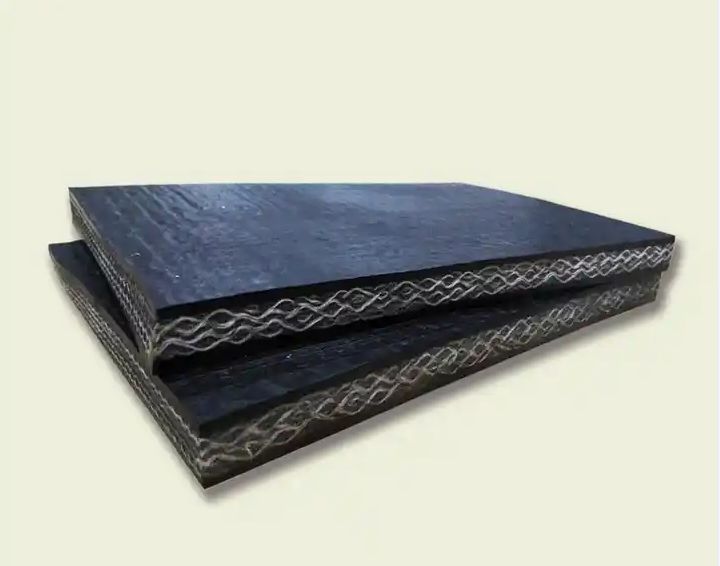
Tag:proper v belt tension,cleated conveyor belts,v belt length size chart,automotive conveyor chain,1 2 x 51 v belt,timing belt sticker
| Place of Origin | shenzhen, China |
| Processing Service | Moulding, Cutting |
| Brand Name | UniBelt |
| After-sales Service Provided | Engineers available to service machinery overseas |
| Specification | 4ply 735mm width 14mm thickness 9MPA |
| Feature | Excellent Heat-resistance |
| Color | Black |
| Name | big v belt |
| Type | Cut Edge |
| Tensile Strenghth | 14MPA-23MPA |
| Material | Natural Rubber |
| MOQ | 87meter |
| OEM | Welcomed |
| Packaging Details | Packaging Details: blue or white Woven Bags Delivery Time: 25-39 days after deposit |
| Supply Ability | 129699 Meter/Meters per Week |
| Quantity (meters) | > 2568 |
| Lead time (days) | 11 |



1.Can big v belt be recycled?
Our big v belt products have competitive and differentiated advantages, and actively promote digital transformation and innovation.
Yes, conveyor belts can be recycled. They are typically made of rubber, which can be shredded and reused in various applications such as flooring, playground surfaces, and automotive parts. Some companies also offer recycling services specifically for conveyor belts, where they are broken down and repurposed into new products. It is important to properly dispose of conveyor belts to prevent them from ending up in landfills and contributing to environmental pollution.
2.Can big v belt be utilized for inclined transport?
As one of the big v belt market leaders, we are known for innovation and reliability.
Yes, conveyor belts can be utilized for inclined transport. In fact, many conveyor systems are designed specifically for inclined transport, such as incline conveyors or cleated belt conveyors. These types of conveyors use specialized belts with cleats or ribs to prevent items from slipping or rolling back down the incline. They are commonly used in industries such as agriculture, mining, and manufacturing to transport materials up or down slopes or inclines.

3.How do you prevent slip and slide on a big v belt?
We are centered on customers and always pay attention to customers' needs for big v belt products.
Slip and slide on a conveyor belt can cause production delays and may also pose a safety hazard in the workplace. To prevent this, several measures can be taken. First, regular maintenance and cleaning of the conveyor belt should be carried out to ensure that it is free from debris and build-up, which can cause slippage. Additionally, the proper tension of the belt should be maintained to ensure it stays on track. Installing anti-slip guards or mats on the conveyor belt can also help increase friction and prevent sliding. Another effective measure is to use conveyor belt pulley lagging, which improves traction between the belt and the pulley. Keeping the surrounding environment dry and free from spills or excessive debris can also contribute to preventing slip and slide. Lastly, providing proper training and ensuring that employees are wearing appropriate footwear can also help reduce slip and slide occurrences on a conveyor belt.
4.What are some potential hazards associated with working with big v belt?
Our big v belt products undergo strict quality control to ensure customer satisfaction.
Working with conveyor belts can pose potential hazards for employees if proper safety measures are not followed. Employees who are not properly trained on how to operate or use the equipment can face serious injuries. Some common hazards associated with conveyor belts include pinch points, entanglement, and falling objects. Pinch points can occur when an employee's body or clothing gets caught between the moving parts of the conveyor belt, which can lead to amputations or severe injuries. Entanglement can also occur if long hair, jewelry, or loose clothing get caught in the moving parts of the belt, causing serious injuries. Additionally, employees who are working near or under the conveyor belt are at risk of being hit by falling objects from the belt or items being transported. It is crucial for employers to provide proper safety training and enforce safety protocols to prevent these hazards and protect their employees.

5.What safety precautions should be followed while working with big v belt?
big v belt is not a product only, but also can help you comes to money-making.
When working with conveyor belts, it is important to follow certain safety precautions to ensure the safety of yourself and those around you. First and foremost, always wear the proper personal protective equipment, such as gloves and safety glasses, to protect against potential hazards. It is also important to regularly inspect the conveyor belt for any signs of wear and tear, and address any issues immediately. When operating the conveyor belt, make sure to follow proper lockout/tagout procedures to prevent accidental start up. When loading or unloading materials onto the conveyor belt, be aware of your surroundings and stand clear from any moving parts. Additionally, be cautious of any potential pinch points and keep hands and clothing clear from them. Lastly, always be familiar with the emergency shut-off procedures and have an emergency plan in place in case of any accidents. By following these safety precautions, you can ensure a safe working environment when working with conveyor belts.
6.Are there different types of big v belt cleaners?
We continue to improve big v belt products and processes to improve efficiency.
Yes, there are various types of conveyor belt cleaners available on the market. These include brush cleaners, scraper cleaners, blade cleaners, and air knife cleaners. Each type has its unique design and function to effectively remove debris and buildup from the conveyor belt. Some cleaners are designed for general-purpose cleaning, while others are specifically designed for certain industries, such as food processing or mining. The type of cleaner needed will depend on the type of material being transported, the size and speed of the conveyor belt, and the specific cleaning requirements of the facility. It is important to select the right type of cleaner for optimal performance and to ensure the proper maintenance and longevity of the conveyor belt.

7.What is a big v belt tracking system?
We have a good reputation and image in the industry. The quality and price advantage of big v belt products is an important factor in our hard overseas market.
A conveyor belt tracking system is a mechanism used to ensure that a conveyor belt stays centered and aligned on its track. It typically consists of sensors, rollers, and other devices that detect and correct any misalignment or deviation of the belt. This system is important for maintaining the efficiency and safety of conveyor systems, as a misaligned belt can cause damage to the belt itself and the equipment it is moving.
8.What is the average lifespan of a big v belt motor?
We attach importance to the innovation ability and team spirit of employees, have advanced R & D facilities and laboratories, and have a good quality management system.
The average lifespan of a conveyor belt motor can vary greatly depending on factors such as usage, maintenance, and environmental conditions. However, on average, a conveyor belt motor can last anywhere from 5 to 15 years. Regular maintenance and proper usage can help extend the lifespan of a conveyor belt motor.

9.How are products loaded and unloaded on a big v belt?
We are a new big v belt manufacturer.
Products are typically loaded onto a conveyor belt using one of the following methods:
Conveyor belts are widely used in various industries to efficiently transport products from one location to another. The loading and unloading process on a conveyor belt typically involves a few steps. Firstly, products are placed onto the conveyor belt by a worker or through an automated system. The belt then moves the products along its path, usually with the help of rollers or a pulley system. As the products reach their destination, they are either manually or automatically removed from the conveyor belt. This can be done by a worker who takes the products off the belt, or by using specialized equipment such as robotic arms. In some cases, the conveyor belt may also have a mechanism to flip or rotate the products to ensure they are in the correct orientation for the next step in the production or distribution process. Once unloaded, the conveyor belt continues to move, ready to receive the next batch of products for loading. This efficient and streamlined process allows for a continuous flow of products, increasing productivity and reducing labor costs.
10.Can a big v belt be used for sorting and diverting products?
We pay attention to employee development and benefits, and provide a good working environment in order to improve the efficiency of employees and improve the quality management of big v belt products.
Yes, a conveyor belt can be used for sorting and diverting products. This can be achieved by using sensors, switches, and other mechanisms to detect and redirect products to different paths on the conveyor belt based on their size, shape, weight, or other characteristics. This process is commonly used in industries such as manufacturing, packaging, and logistics to efficiently sort and distribute products to their designated destinations.

11.How do you safely handle and maintain big v belt pulleys?
Handling and maintaining conveyor belt pulleys is crucial to ensure the proper functioning and longevity of the entire conveyor system. The first step is to always use proper lifting techniques and equipment to safely handle the pulleys. It is important to regularly inspect the pulleys for any signs of wear and tear, such as cracks or dents, and promptly replace them if necessary. Regular cleaning is also essential to prevent build up of debris, which can cause damage to the pulleys and affect the performance of the conveyor. Lubrication of the pulleys is also important to reduce friction and prevent excessive wear. In case of any malfunctions or abnormalities, it is recommended to consult a professional for proper maintenance and repairs. By following these precautions, conveyor belt pulleys can be safely handled and maintained, ensuring the smooth operation of the conveyor system.
12.What are the different types of big v belt?
We adhere to the principle of quality first and have a complete production quality management system and quality inspection process.
There are several types of conveyor belts that are designed for different purposes. The most common types include flat belt conveyors, roller conveyors, modular belt conveyors, and cleated belt conveyors. Flat belt conveyors are used for general transportation of items and materials, while roller conveyors use rollers to move goods along a path. Modular belt conveyors feature interlocking plastic segments for increased versatility, and cleated belt conveyors have raised sections or cleats to keep items from sliding off the belt. Other types of conveyor belts include magnetic belt conveyors, spiral conveyors, and gravity conveyors. The type of conveyor belt used depends on the specific needs and requirements of the application, such as the weight and size of the items being transported and the environment in which the conveyor will be used.

13.How do you determine the appropriate width of a big v belt?
We focus on teamwork and communication to achieve common goals, We attach great importance to this detail.
The appropriate width of a conveyor belt is determined by several factors. Firstly, the dimensions of the items being transported need to be considered. The belt should be wide enough to accommodate the size of the items without causing any damage or hindering the flow. Additionally, the speed and capacity of the conveyor system should also be taken into account. A wider belt can increase the speed and capacity of the system, allowing for more efficient and timely transportation of goods. Another important factor is the layout and space available for the conveyor system. The belt should be wide enough to fit within the space and allow for proper installation and operation. Finally, the type of material being conveyed and any special requirements, such as inclines or declines, should also be considered when determining the appropriate width of the conveyor belt.
14.What are the advantages of using a big v belt over other forms of material handling?
We have advantages in marketing and channel expansion. Suppliers have established good cooperative relations, continuously improved workflows, improved efficiency and productivity, and provided customers with high -quality products and services.
Conveyor belts are widely used in various industries for material handling purposes. They have several advantages compared to other forms of material handling methods. Firstly, they are highly efficient and can transport large quantities of goods or materials at a faster pace, resulting in increased productivity. This is because conveyor belts are automated and can operate continuously without the need for breaks or rest periods. Secondly, they require minimal human intervention, reducing the risk of human error and potential accidents.
they offer better safety compared to manual material handling methods, thus protecting workers from potential injuries. Continuous and consistent movement of goods also reduces the chances of damage or breakage.
conveyor belts can be customized to fit specific needs and can be used to handle a wide variety of materials, including heavy and bulky items. As a result, they are versatile and can be utilized in different industries. Finally, conveyor belts help to save space as they can transport materials over long distances or through tight spaces, making them a more cost-effective option for material handling.

15.Can big v belt be used for vertical transport?
We have flexible production capacity. Whether you are large orders or small orders, you can produce and release goods in a timely manner to meet customer needs.
Yes, conveyor belts can be used for vertical transport. This type of conveyor system is known as an inclined or vertical conveyor. It uses a series of belts or chains to move materials up or down an incline or vertical path. These types of conveyors are commonly used in warehouses, distribution centers, and manufacturing facilities to move products between different levels of a building. They are also used in mining and construction industries for transporting materials to different levels of a site.
16.What are some important factors to consider when choosing a big v belt supplier?
When choosing a conveyor belt supplier, there are several important factors that should be considered. Firstly, the quality and durability of the conveyor belt should be top priorities. This includes the material used, its weight capacity, and its resistance to wear and tear. Secondly, the supplier's reputation and experience in the industry should be evaluated. A reliable supplier with a good track record will ensure efficient and timely delivery of products. Thirdly, the cost and availability of spare parts and maintenance services should also be taken into account. Additionally, the supplier's level of customer service and support should be assessed to ensure a smooth and satisfactory purchasing experience. Finally, the supplier's compliance with international standards and regulations should also be considered to ensure the safety and reliability of the conveyor belt. Ultimately, a thorough evaluation and consideration of these factors will lead to choosing a reputable and reliable conveyor belt supplier.

Tag:proper v belt tension,cleated conveyor belts,v belt length size chart,automotive conveyor chain,1 2 x 51 v belt,timing belt sticker

